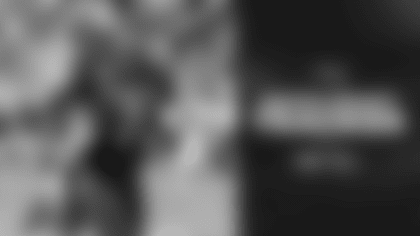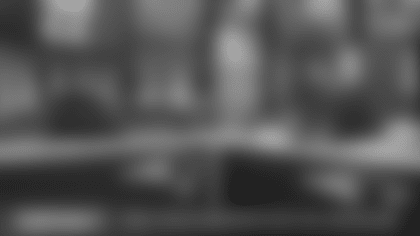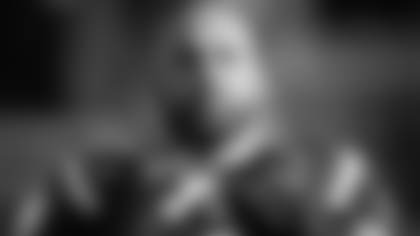Forty years ago, the New England Patriots went where the franchise had never gone before.
They didn't hoist the Lombardi Trophy. They didn't get a parade. But the 1985 Patriots did something that still endures—they laid a foundation. They stormed through the AFC playoffs and punched the franchise's first-ever ticket to the Super Bowl. And they did it with a formula of rugged leadership, throwback toughness, and a defense that choked the air out of opponents.
"Nobody thought we would be the best team in the AFC," wide receiver Cedric Jones said. "But we started off the season against Green Bay… and then we just kept rolling."
The 1985 team was a collection of old warriors and hungry young risers, led by the steady, cerebral presence of head coach Raymond Berry. While their blowout Super Bowl loss to the '85 Bears is now mostly a forgotten moment in team history, that final score doesn't capture the heart, grit, and transformation of a team that truly redefined what it meant to be a Patriot.
A Culture Rebuilt
The seeds of 1985 were planted years earlier. The late '70s and early '80s had seen flashes of promise. The hard-nosed 1976 squad and the record-setting rushing attack in 1978 were standout seasons that earned the franchise's first two division championships, but both ended with first-round playoff exits.
Instability and heartbreak followed. Stalwarts of the first playoff teams departed, including a future Hall of Famer and members of a record-breaking backfield. Coaches too. By the mid-1980s, the Patriots were known more for potential squandered than realized, leaving behind a core of special veteran players who might've believed their window of opportunity had closed.
Then came Raymond Berry.

A Hall of Fame receiver with a soft-spoken demeanor and a mind sharpened by detail, Berry took over midway through the 1984 season, replacing Ron Meyer. His influence was immediate and deep.
"He spent the rest of that season getting to know the players," said center Pete Brock, one of the '70s holdovers. "He knew everybody's names, their spouses, their families… he made us all feel like we were part of something."
Berry didn't promise results. He instilled belief.
"First day of training camp [in 1985]," Brock recalled, "he stands in front of us and says, 'I've got an idea. Why don't we go to the Super Bowl?' And then he told us what it would take."
It would take sacrifice. Consistency. And above all, establishing an identity.
Defense: Turnovers, Toughness, and Tip
The 1985 Patriots found their identity on defense. Coordinator Rod Rust's unit finished fifth in modern analytical statistic DVOA, per the stat's founder Aaron Schatz, while the team ranked sixth overall in the NFL. In context, the 1985 Patriots defense ranks as the fourth-best defense in Patriots history by DVOA behind the 2019, 2003 and 2004 defenses.
This was a historic Patriots defense. They thrived on disruption—turnovers, fumble recoveries, and physicality that wore opponents down.
"We were smart, tough, and determined," said Hall of Famer Andre Tippett, who recorded 16.5 sacks as part of a linebacker unit that helped lead the way and set the tone. "We took pride in knowing every area of the field... and we decided we were going to be the baddest men in the room."
It started with Tippett and Don Blackmon on the edge, Fred Marion and Roland James on the back end, and Steve Nelson—still the heartbeat of the franchise after 12 years—commanding the middle, while Patriots Hall of Fame cornerback Raymond Clayborn was an early example of the "shutdown corners" who would become critical to defenses as the passing game took off.
Throughout the season, passing offenses made it a point to avoid throwing at Clayborn's side of the field.
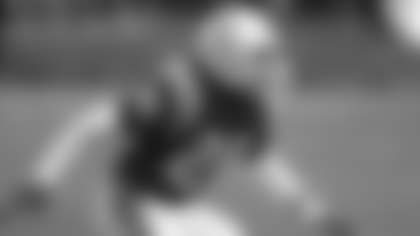
"They tried to throw at me and it didn't work too well for them," said Clayborn, who was second on the team with six interceptions and earned his second of three Pro Bowl nods in 1985.
Up front, the defense featured a stout mix of veteran linemen led by franchise cornerstone Julius Adams and former first-overall pick Kenneth Sims, while rookie Garin Veris burst onto the scene with 10 sacks as a rookie in 1985.
"From the very get go, they were telling me, 'Hey, you're a rookie, but we feel that you can be part of this defense and be a contributing part,'" said Veris. "You never felt like a rookie other than the rookie tasks that they would give you around the locker room, but once you made the team, you were part of that team."
"We had a great mixture of older guys and younger players," Nelson said. "And when you win three playoff games on the road, you don't do that with just offense. You need defense. That was the highlight of my pro career."
Ronnie Lippett, a rising star in the secondary playing across from Clayborn, vividly recalled the unit's swagger and physicality. "We did all the intimidation," said Lippett. "When we played the Raiders, we started the fights. We got things going and we looked for it, man. We wanted it bad. Come on. Let's do it."
Practice Details
Raymond Berry might've been a Hall of Fame receiver, but at his core he was a teacher. And in 1985, his classroom was everywhere: the practice field, the meeting room, even the locker room. His approach was meticulous, methodical, and deeply personal. He didn't just install plays, he instilled belief and many of his lessons remain with his players 40 years later.
"He came in as if we had never played the game before in our lives," said Robert Weathers. "He made no assumptions. He taught us everything, how to take care of our bodies, how to train our fingers with Silly Putty. And oddly enough, we had no finger injuries that year."
Berry's practices were built on fundamentals. Every day began with fumble drills. Every player—linemen, kickers, stars—had to scoop and recover the ball. It became second nature. And it paid off. The Patriots forced 16 turnovers in three playoff games.
"We were looking around like, why are we doing this?" Tippett said of the early days in training camp when the 1984 Pro Bowler found himself diving on loose footballs. "But we blocked punts, we scooped and scored, we created turnovers. All because of those drills."
But Berry's genius wasn't just in the details. It was in the way he connected.
"He was an amazing coach," said Tony Collins. "I always remember Coach Berry as a father figure. A man that loved God and talked about God. I still look up to him today."
Berry's message was simple: love one another. Trust your teammate. And give everything you have on the next play.
"He said the most important play of the season is the next one," Brock added. "Because it's the only one you have control over."
Even the grizzled veterans bought in.
"Raymond was a calming influence," said Dante Scarnecchia, who was in his fourth season in 1985 as the special teams and tight ends coach. "He had huge respect among the players. They did everything he asked. That made it easier for everyone."
And when the Patriots lost to Miami late in the regular season, Berry didn't rant. He gathered the team in the locker room and said, "We've been delayed, but we will not be denied."
It became a rallying cry.
"He brought that level of professionalism and preparedness," Tippett said. "He was always a stickler for doing the little things right."
Forty years later, the players still speak of him with reverence. Not just as a coach, but as the man who made them believe they could be champions.
Offense Finds Its Footing
The offense had a more chaotic evolution. Quarterback Tony Eason, the former first-round pick, entered the year as the starter but was plagued by inconsistency and turnovers in the early going. After a 3–3 start, Eason suffered a shoulder injury and in stepped veteran Steve Grogan, one of the long-tenured players who was a centerpiece of the team's earlier success in the 1970s.
Grogan, playing in his 11th season, didn't just hold the fort, he ignited a six-game win streak that would define the team's identity: power running, timely big plays off of play action, and resiliency. Trusting the veteran's experience and understanding of the offense, Berry allowed Grogan to call his own plays and suddenly the '85 Patriots found their stride.
"When Grogan came in, he brought fire," said Craig James, who led the team with over 1,200 rushing yards. "He let us be physical. He let us be us."
When Grogan went down with a broken leg against the Jets in Week 12, Eason stepped back in and found a renewed focus, leading the team to a 3-2 record down the final stretch, earning a playoff berth with a season-ending win over the Bengals.
After a turnover-plagued start to the season, Eason didn't throw a single interception and led the league in touchdown throws through the team's first three playoff games. Grogan provided a spark that resonated through the entire team, even the starting quarterback who would return to finish out the year.
That was due, in part, to a running back room that was a four-headed monster: Tony Collins, Craig James, Robert Weathers, Mosi Tatupu. All had different strengths and all were willing to sacrifice. The foursome came to be the most critical aspect of the offense and each player helped deliver big plays and wins throughout the season.
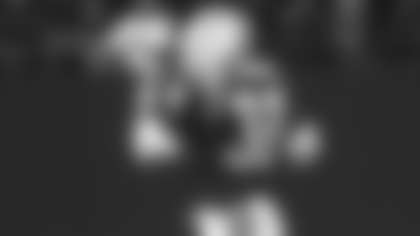
James became the fourth Patriots running back to break 1,000 rushing yards with 1,227. Collins led the team in receptions (52) while piling up 1,206 all-purpose yards. Weathers and Tatupu delivered in short-yardage and big moments, like Tatupu's game-winning touchdown against the Colts and Weathers' fourth-down, 42-yard touchdown against Cincinnati that sealed a wild card playoff spot.
It wasn't 1978's record-breaking ground attack, but it was a special group.
"It was a classic example of what teamwork is about," said Weathers. "They found the situations where we could each help. And when our time came, we were ready."
Up front, the line took pride in dragging opponents down into the mud. By the time the fourth quarter arrived, the Patriots were just starting to hit their stride, especially on the ground.
"Coach Bryant used to say: 'We'll win it in the fourth quarter because we've paid a higher price than them,'" said Pro Football Hall of Fame left guard John Hannah, who played through pain in what would be his final season. "If you're having six-, nine-, twelve-play drives all the time… you keep that defense on the field, and you wear 'em out."
Stanley Morgan, the franchise's all-time deep threat, continued to stretch defenses with his signature speed, while second-year wideout Irving Fryar emerged as a dynamic weapon both on offense and special teams.
Fryar's 85-yard punt return touchdown against Buffalo was one of two he scored that season, helping him earn his first Pro Bowl selection. Cedric Jones, meanwhile, became a reliable and timely target, delivering clutch catches throughout the playoff run, while also making some key contributions on special teams.
Together, the trio gave the Patriots a versatile and explosive receiving corps that complemented their bruising ground game and kept defenses honest when it mattered most.
Miami, Finally
After a regular season that ended at 11–5, New England squeaked into the playoffs as a wild card with a final win over the Cincinnati Bengals. The reward? No home games. Just three win-or-go-home matchups, all on the road.
It would be an unprecedented run, as the '85 Patriots became the first team in NFL history to win three road playoff games en route to the Super Bowl.
They beat their division rivals the Jets after splitting with them during the regular season. They exercised some organizational demons from 1976 by beating the Raiders in Los Angeles. But the most meaningful win came in Miami.
The Patriots hadn't won in the Orange Bowl in 18 straight trips. The Dolphins, led by Dan Marino, were the defending AFC champions and had handed New England a 30–27 loss just weeks earlier. The ghosts of the past loomed large, but this time, the Patriots were ready.
They flew down early to acclimate to the heat and humidity. They practiced on a muddy field. They focused on the run game and ball security. And they believed.
"We had so much momentum going into that game that I knew we were going to win," said Cedric Jones. "It was really exciting."
The defense forced six turnovers. The offense rushed for nearly 250 yards. Robert Weathers delivered a 45-yard run and later sealed the game with a touchdown reception. The Patriots dominated the line of scrimmage and suffocated Marino's passing attack.
"It was the last game at that stadium," Andre Tippett said. "And we were reenacting what Coach Berry had said earlier in the year: 'We've been delayed, but we will not be denied.'"
Fred Marion came up with his third straight playoff takeaway. Roland James sealed the win with an interception. The Patriots were headed to the Super Bowl.
"I remember the exuberance, the excitement we had after the game," James said. "Dancing on the sideline. I remember saying, 'Man, we got one more game. Let's go do this.'"
For John Hannah, it was the culmination of a career spent in the trenches: "We ran for 200-plus yards. We just kind of smashed them in the mouth. That was the epitome of my career."
And for the franchise, it was a victory that changed everything.
"We were the first to ever even break through in the playoffs and get to the Super Bowl," said Weathers. "We gave New England a first glimpse of what was possible."

Super Bowl XX: A Loss, Not a Failure
And then came New Orleans.
The Patriots ran into a buzzsaw: the 1985 Chicago Bears, widely considered one of the greatest teams in NFL history. The result, a 46–10 drubbing, was humbling.
"You don't know how powerful that defense is until you're on the field at the Super Bowl and you're watching what's happening out there and our team is getting destroyed," said Tippett. "It was just like I was in awe of it. I really was."
"I said 'I think they got one more guy than we do,'" Craig James said, while Lippett summed it up succinctly, "It felt like we had 11 on offense and they had 22 on defense."
Lippett joked the loss stuck with him in surprising ways: "We played hard. But they didn't get 50. Now I'm afraid of bears. I go in the woods, and my friends know… I didn't used to be afraid of bears."
But the players don't define their legacy by that one day.
"You can only be first once," Weathers said. "We were the first Patriots team to do this. And I just hope we don't get lost in the sauce."
Nelson agreed: "That '85 season really put us in the spotlight of New England. We showed that football mattered here."
Lasting Impact
The impact of the 1985 team went beyond wins and stats.
They taught the region to believe. The Patriots weren't also-rans or second-class citizens in Boston's sports ecosystem anymore. They were contenders. They mattered.
"Everyone, whether you were the richest man in town or not, was pulling for the Patriots," Brock said. "For a moment, everybody could celebrate something together."
Berry's squad inspired. They elevated expectations. And they provided a blueprint: a cohesive defense, a physical run game, accountability at every level, for what Patriots football could be.
Many players and coaches, including Tippett and Scarnecchia, have continued to carve out their legacies in the organization or have been around the team for years. Others watched from afar with pride as the franchise, first under Parcells and then under Belichick and Brady, turned into a dynasty.
"You can't plan for what comes later," Tippett said. "But you better believe we were part of what built it."
Remembering '85
On this 40th anniversary, the 1985 Patriots deserve more than a footnote. They were trailblazers. They were tough. And they played with a selfless love for one another that made them greater than the sum of their parts.
The team featured seven eventual Patriots team Hall of Famers and two Pro Football Hall of Famers. The talent was obvious, and it all came together in a special way.
"Every Monday night, the team went out together," Tony Collins said. "Linebackers, O-line, DBs... it was always somebody else's turn to buy. That kind of love doesn't just happen. That was the key."
"You don't forget a team like that," Jones added. "Even now, when I hear 'Squish the Fish,' it gives me chills."
Ronnie Lippett, still marveling at the camaraderie all these years later, reflected, "That 1985 team was a very special team. A lot of love in that locker room… We looked out for each other out there. I just miss the old guys."
Scarnecchia, part of 10 Patriots Super Bowl trips, still calls that group unique: "They were well-grounded. They really came to understand what it takes to be a good football team… And through it all, they kept their eyes on the prize."
Hall of Famer John Hannah summed it up with quiet reverence: "Of all the things about it, that's the one thing that kind of stands out in my mind, that run. All road games. All wins. Something that's never been done before. And we did it."
They didn't win a Super Bowl. But they won belief: from each other, from a region, and from a franchise still finding its identity.
Their run lit a path. And forty years on, the light still shines.

The New England Patriots take on the Chicago Bears in Super Bowl XX on January 26, 1986 at the Louisiana Superdome.
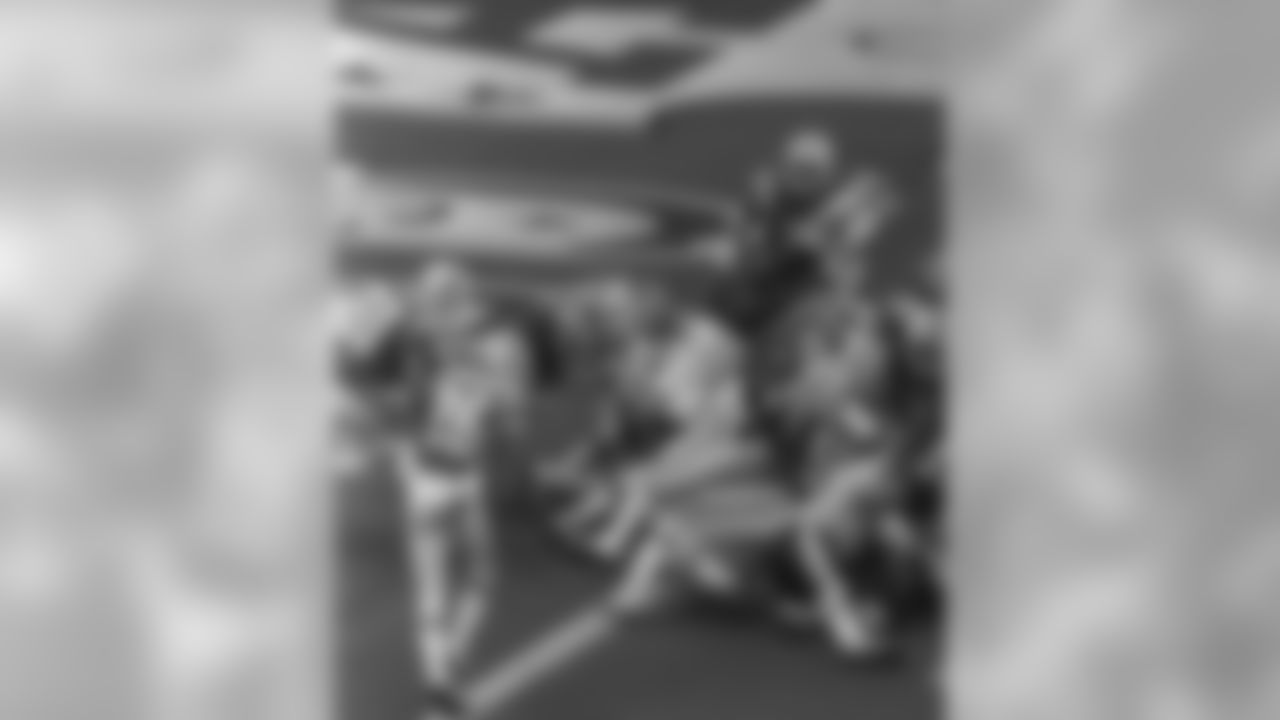
Chicago Bears quarterback Jim McMahon dives over the line into the end zone to score a touchdown against the New England Patriots in Super Bowl XX, Jan 26, 1986. (AP Photo)
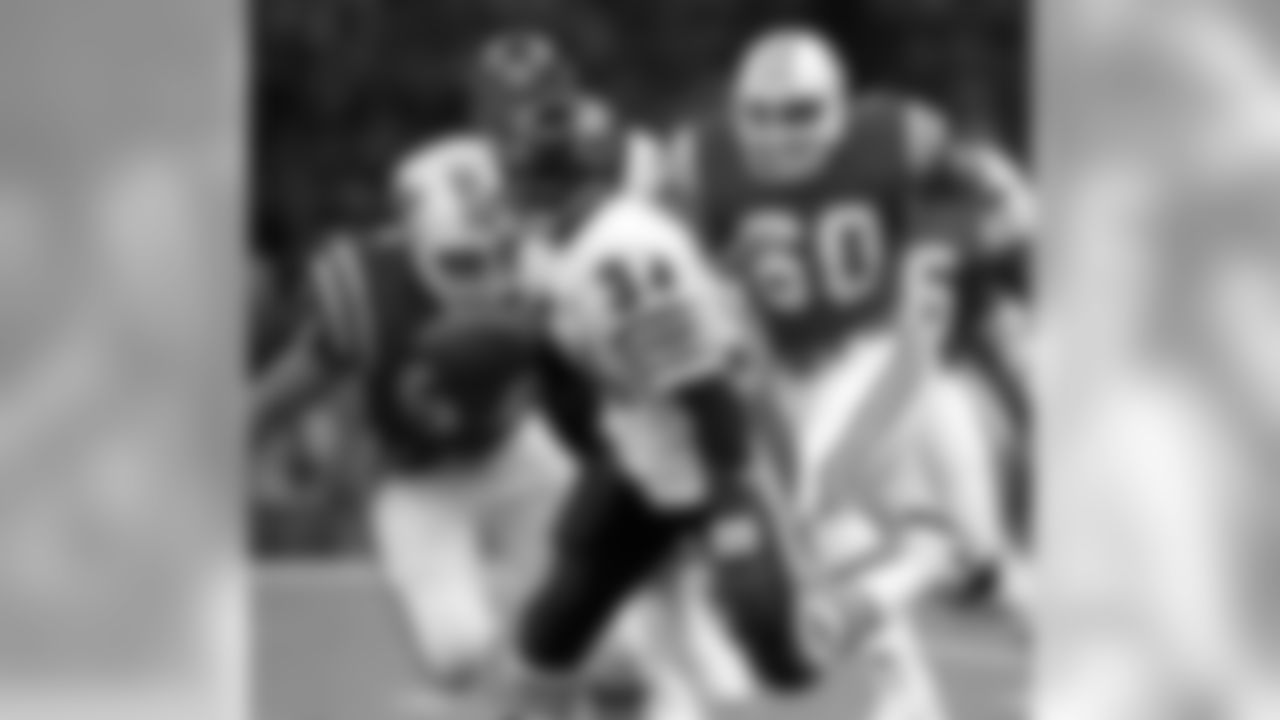
Chicago Bears' Walter Payton runs with the ball Sunday Jan. 27, 1986 during Super Bowl XX in New Orleans. The Bears defeated the New England Patriots 46-10 to win Super Bowl XX. (AP Photo/Red McLendon)
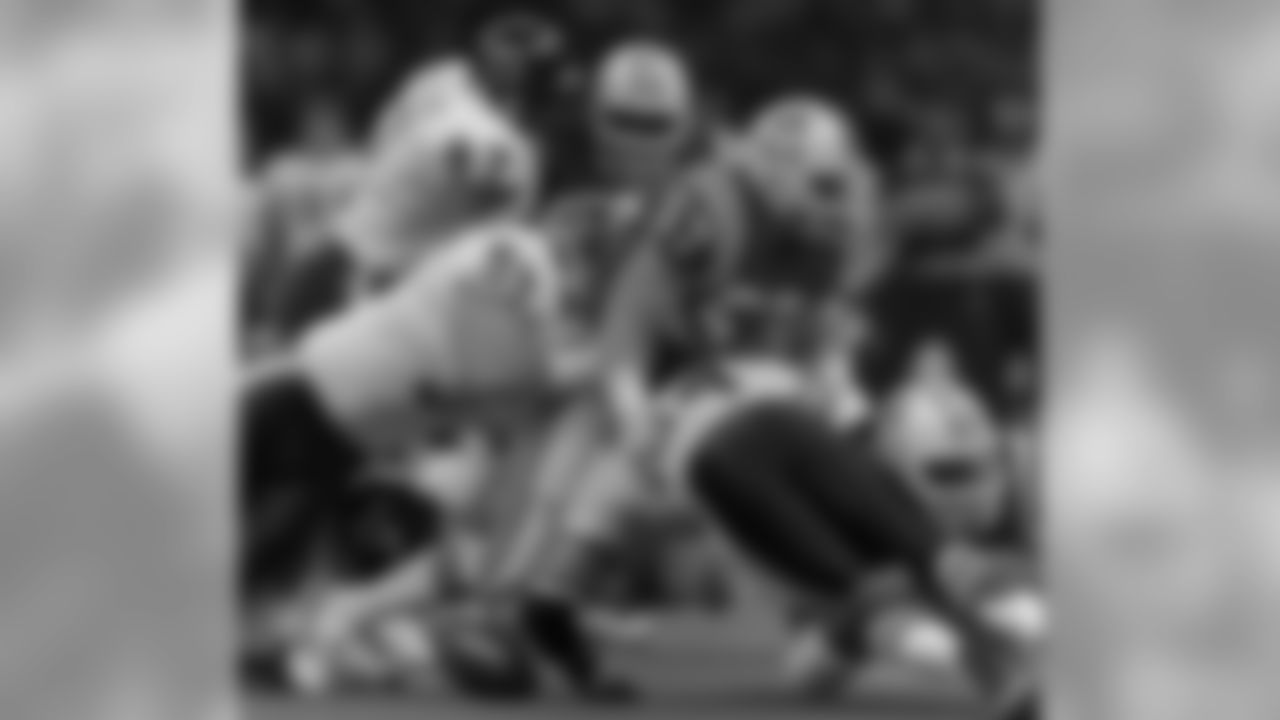
Chicago Bears Walter Payton (34) drops the ball as New England Patriots tackle him in the first quarter of Super Bowl XX, in New Orleans, Jan.26, 1986. (AP Photo/Amy Sancetta)
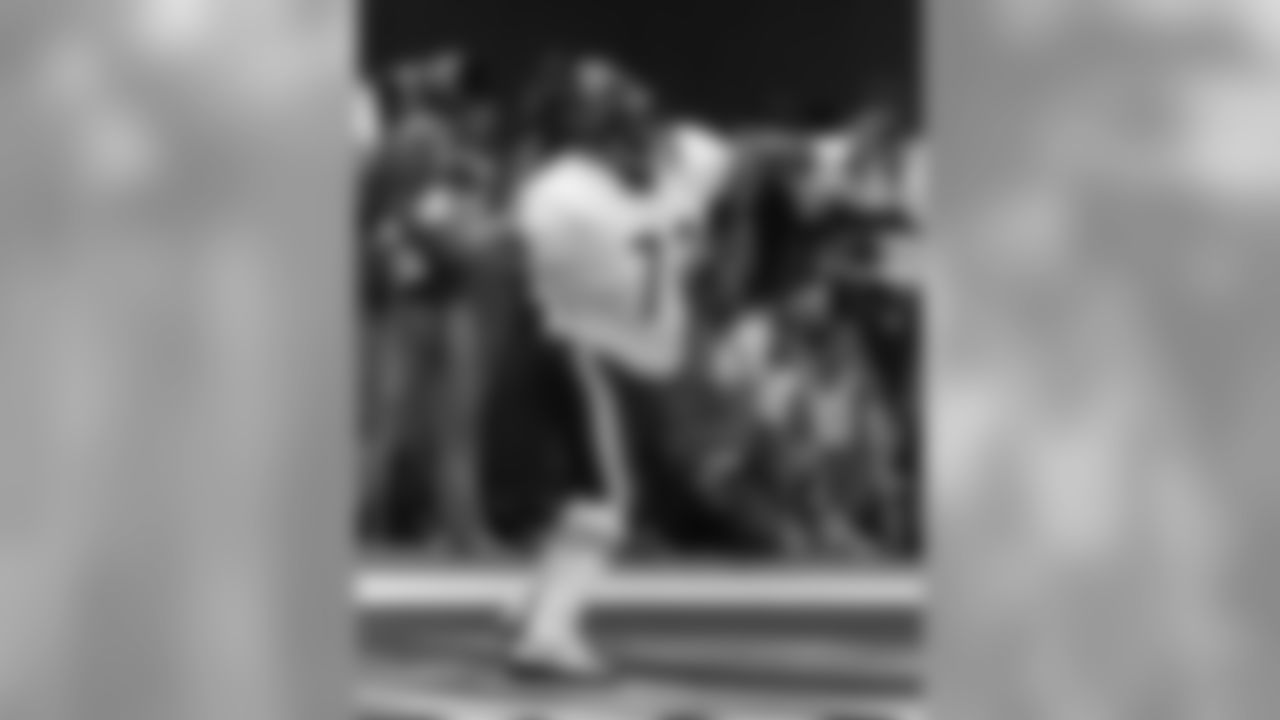
FILE - In this Jan. 26, 1986 file photo, Chicago Bears' William "The Refrigerator" Perry spikes the ball after scoring a touchdown in Super Bowl XX against the New England Patriots, in New Orleans. Former Chicago Bears defensive lineman William "The Refrigerator" Perry remains hospitalized in South Carolina. Aiken Regional Medical Center spokeswoman Melissa Summer said Wednesday, April 22, 2009, that Perry is in serious condition. The 46-year-old Perry has been hospitalized to deal with complications from Guillain-Barre Syndrome, a chronic inflammation disorder of the peripheral nerves. (AP Photo/Amy Sancetta, File)
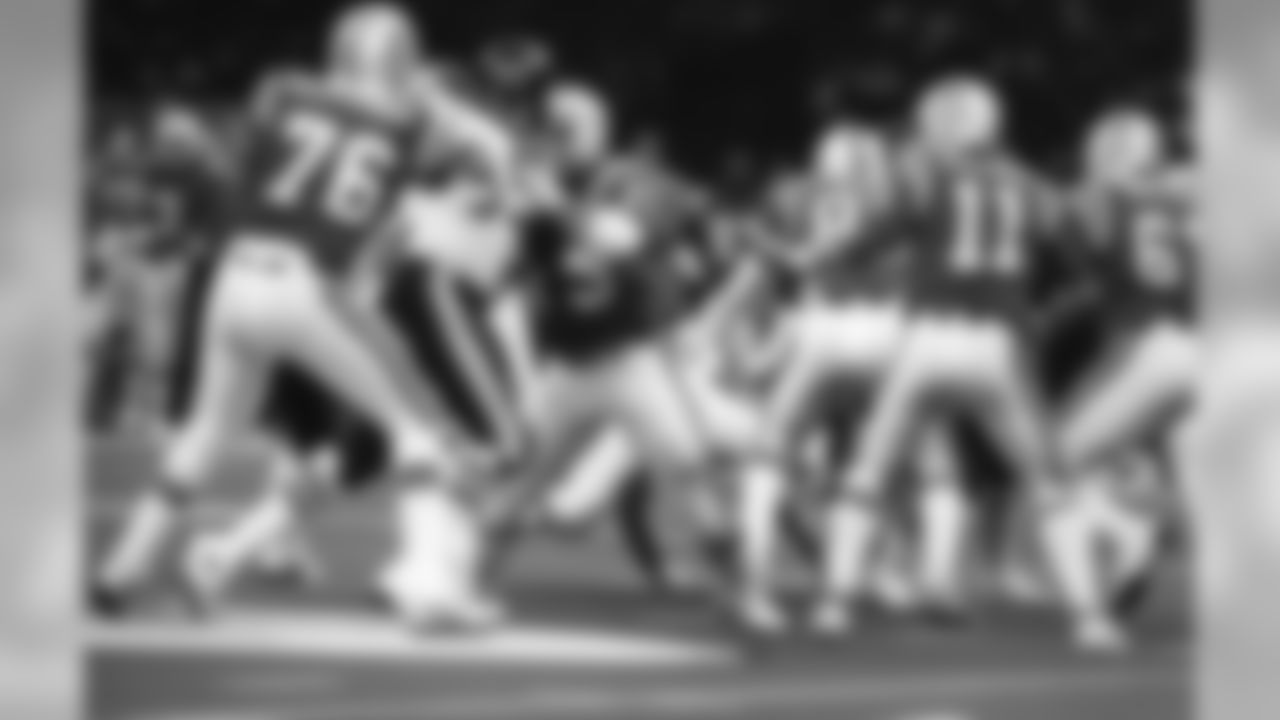
Chicago Bears defensive end Richard Dent (95) is blocked by Patriots guard John Hannah (63) and tackle Brian Holloway (76) during a 46 to 10 Bears victory over the New England Patriots in Super Bowl XX on January 26, 1986 played at the Louisana Superdome in New Orleans, Louisiana. (AP Photo/NFL Photos)
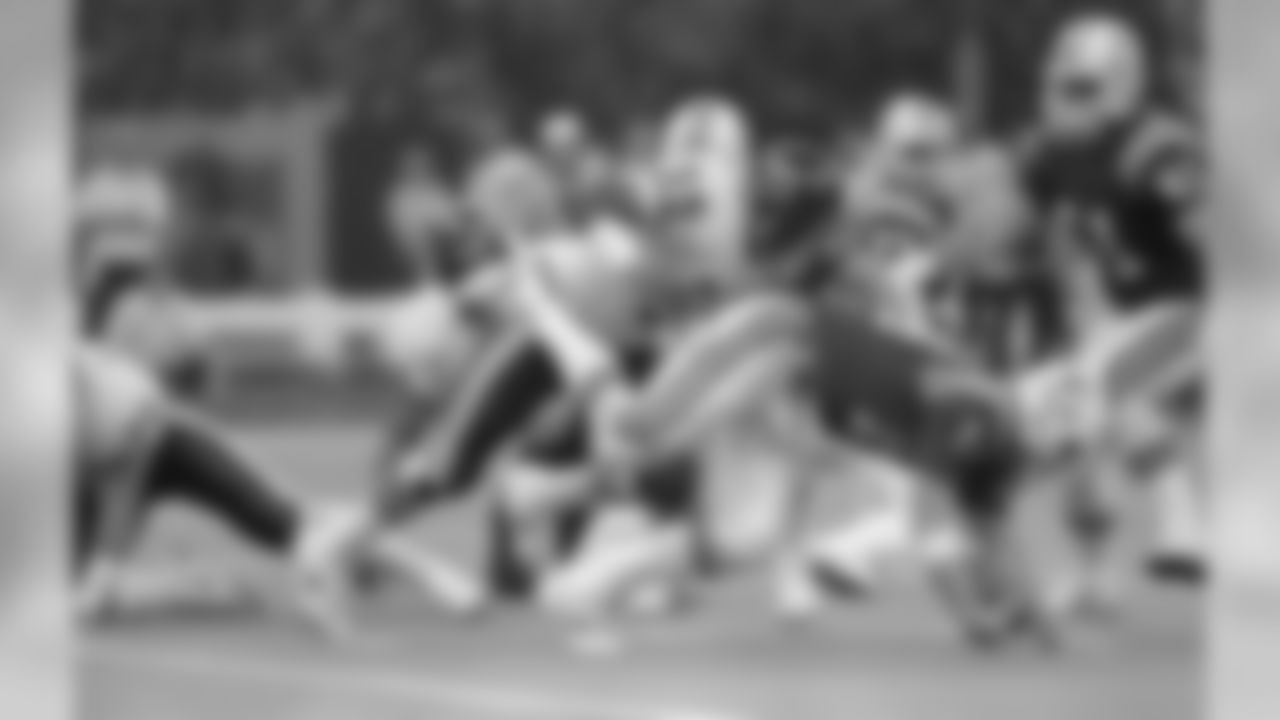
Chicago Bears' Richard Dent (95) sacks New England Patriots' Steve Grogan during Super Bowl XX in New Orleans, Jan. 26, 1986. The Bears won 46-10 and Dent was named Most Valuable Player of the game. (AP Photo/Lennox McLendon)
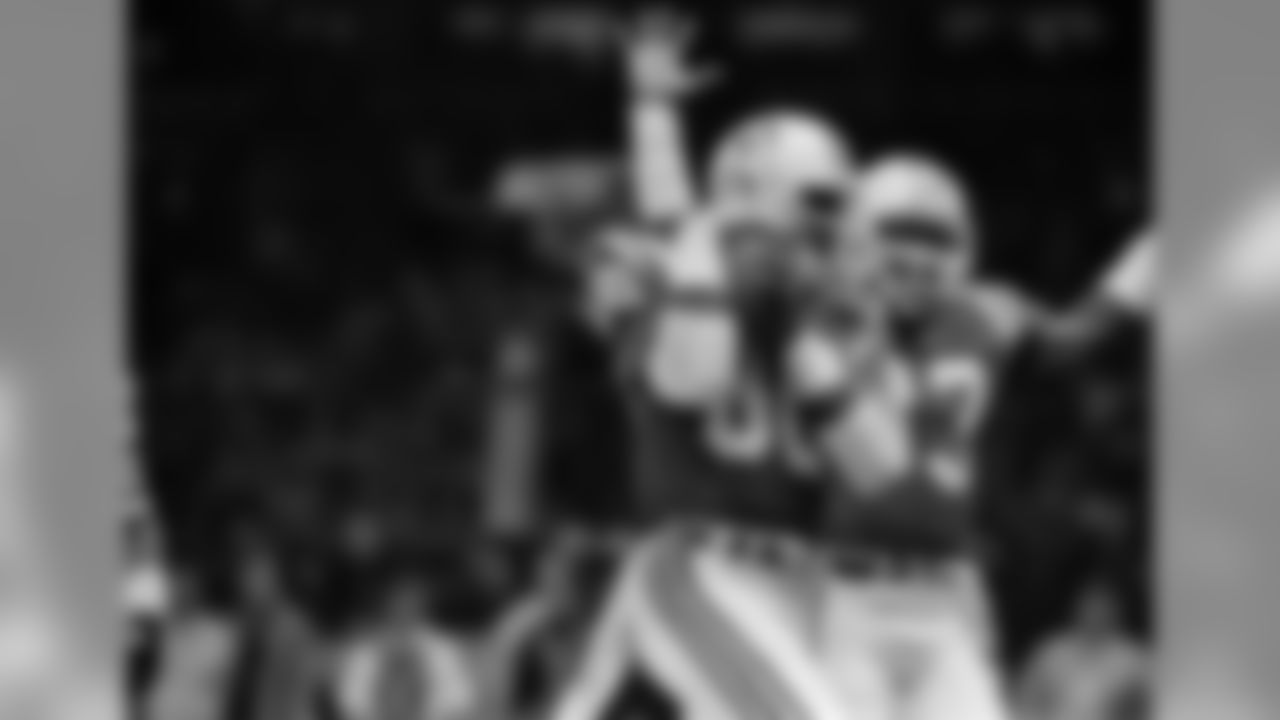
New England Patriots Irving Fryar (80) catches the ball in the end zone to score the Patriots only touchdown in Super Bowl XX in New Orleans on Sunday, Jan. 27, 1986. Patriots Cedric Jones celebrates in background. New England lost to the Chicago Bears 46-10. (AP Photo/Feig)

An overhead view of the halftime show at Super Bowl XX between the New England Patriots and the Chicago Bears on January 26, 1986, at the Louisiana Superdome in New Orleans. (Al Messerschmidt via AP)


26 JANUARY 1986. New England Patriot Hall of Fame Guard John Hannah (73) who played for the Patriots from 1973 to 1985 is seen here on the bench in Superbowl XX in New Orleans where the Patriots lost to the Chicago Bears. (Icon Sportswire via AP Images)
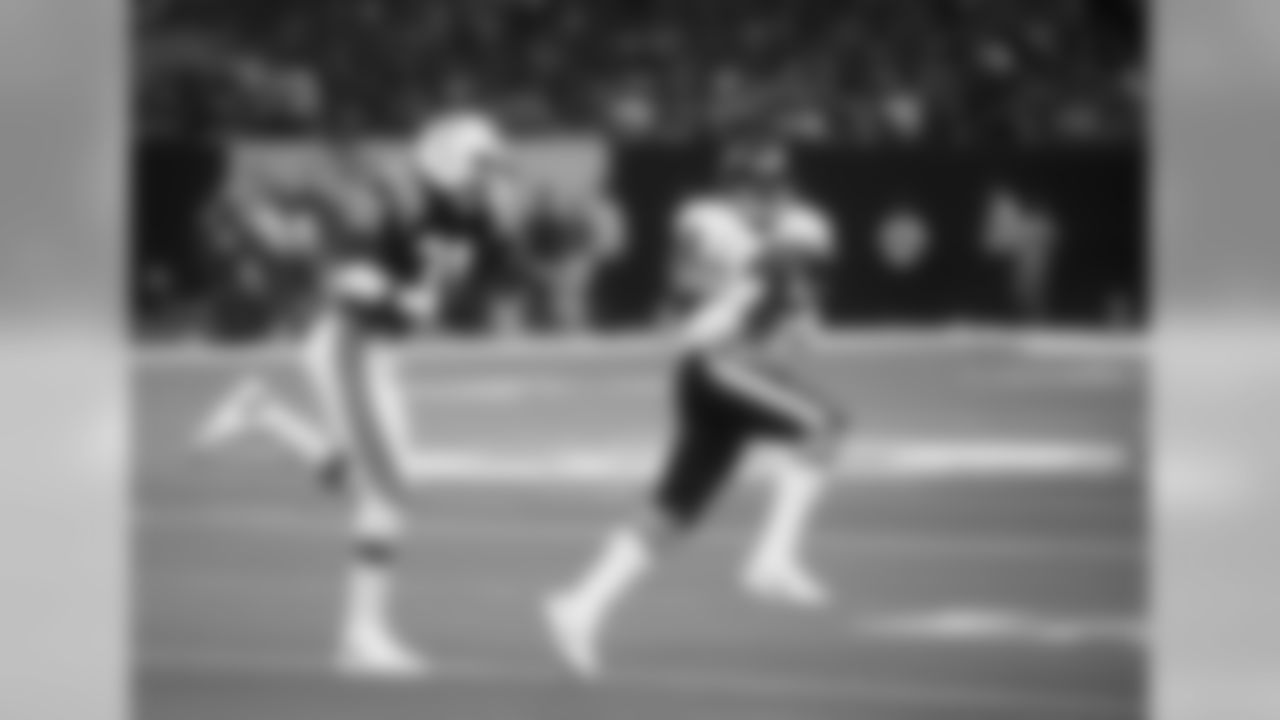
Chicago Bears wide receiver Willie Gault (83) catches a pass during Super Bowl XX, a 46 - 10 victory over the New England Patriots on January 26, 1986, at the Louisiana Superdome in New Orleans. (Al Messerschmidt via AP)
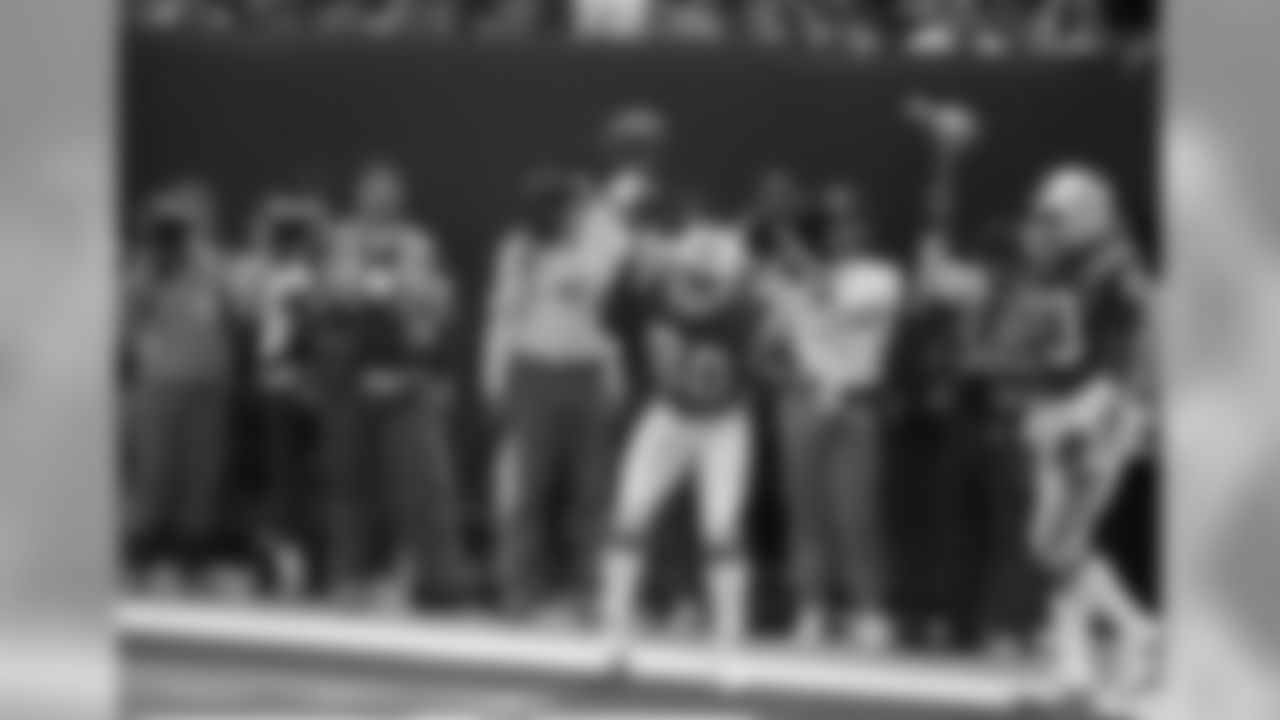
Irving Fryar celebration after scoring the New England Patriots only touchdown in Super Bowl XX in New Orleans, Jan. 26, 1986. (AP Photo)
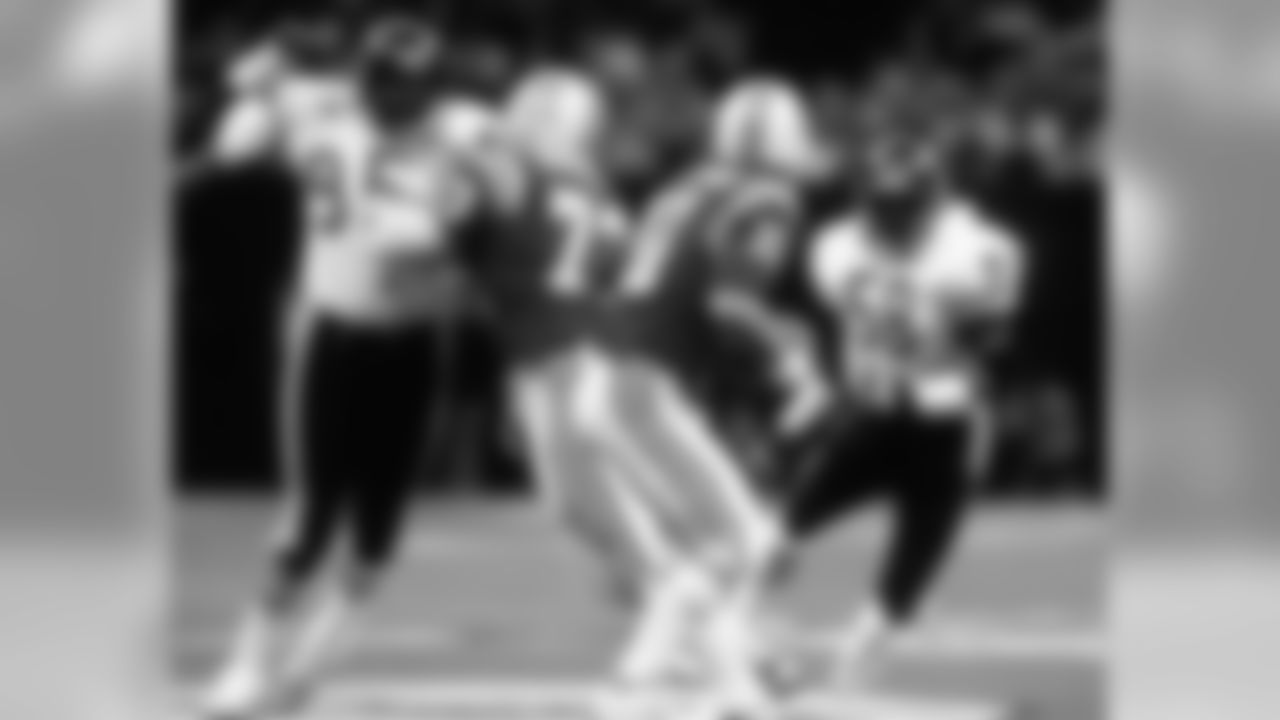
New England Patriots quarterback Tony Eason looks to throw the ball under pressure by Chicago Bears linebacker Wilber Marshall (58) during Super bowl XX Jan. 26, 1986, at the Louisiana Superdome in New Orleans. The Chicago Bears defeated the New England Patriots 46–10. (Tony Tomsic via AP)
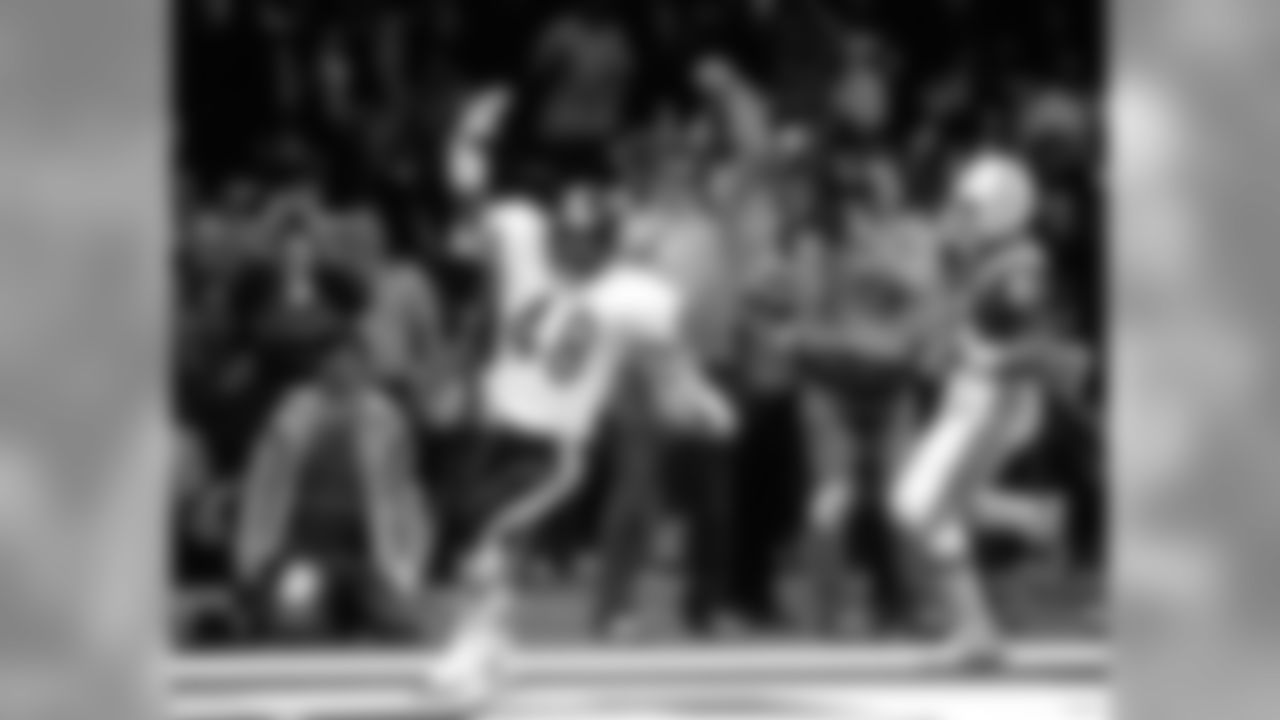
Chicago Bears defensive back Reggie Phillips (48) intercepts a pass and returns it 28 yards for a touchdown during Super bowl XX Jan. 26, 1986, at the Louisiana Superdome in New Orleans. The Chicago Bears defeated the New England Patriots 46–10. (Tony Tomsic via AP)
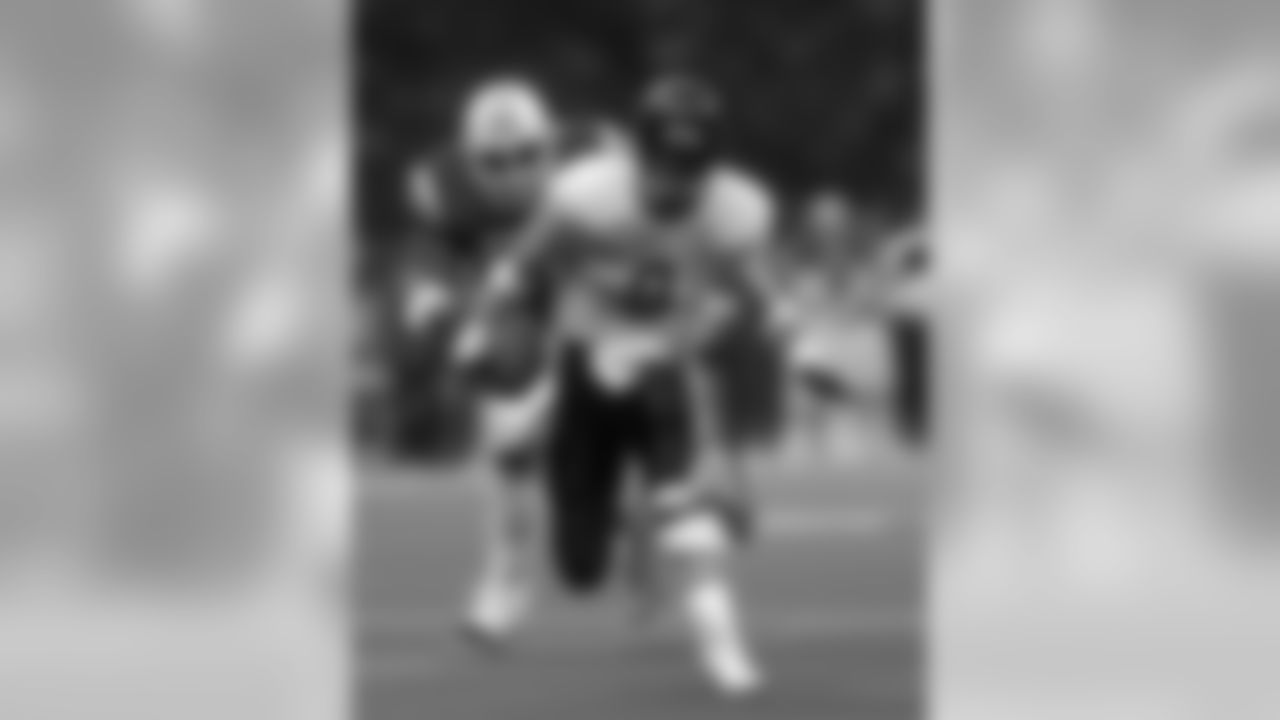
26 JAN 1986: Jim McMahon (9) of the Bears runs for some yardage as a Patroits defensive player chases McMahon down from behind as the New England Patriots take on the Chicago Bears during Super Bowl XX at the Superdome in New Orleans, LA. (Sportswire via AP Images)

Program cover for Super Bowl XX where the Chicago Bears won 46-10 over the New England Patriots at the Superdome in New Orleans, Louisiana on January 26, 1986. Super Bowl XX Art - Chicago Bears vs New England Patriots - January 26, 1986 (AP Photo/NFL Photos)

FILE- In this Jan. 26, 1986, file photo, Chicago Bears head coach Mike Ditka is carried off the field by Steve McMichael, left, and William Perry after the Bears defeated the New England Patriots 46-10 in Super Bowl XX in New Orleans. Argue all you want about which is the best team in NFL annals. The Pro Football Hall of Fame has opted for the 1985 Chicago Bears. The Canton shrine will premiere "85: THE GREATEST TEAM IN FOOTBALL HISTORY" on Jan. 3. It will then hit theaters nationwide on Jan. 29. (AP Photo/Phil Sandlin, File)
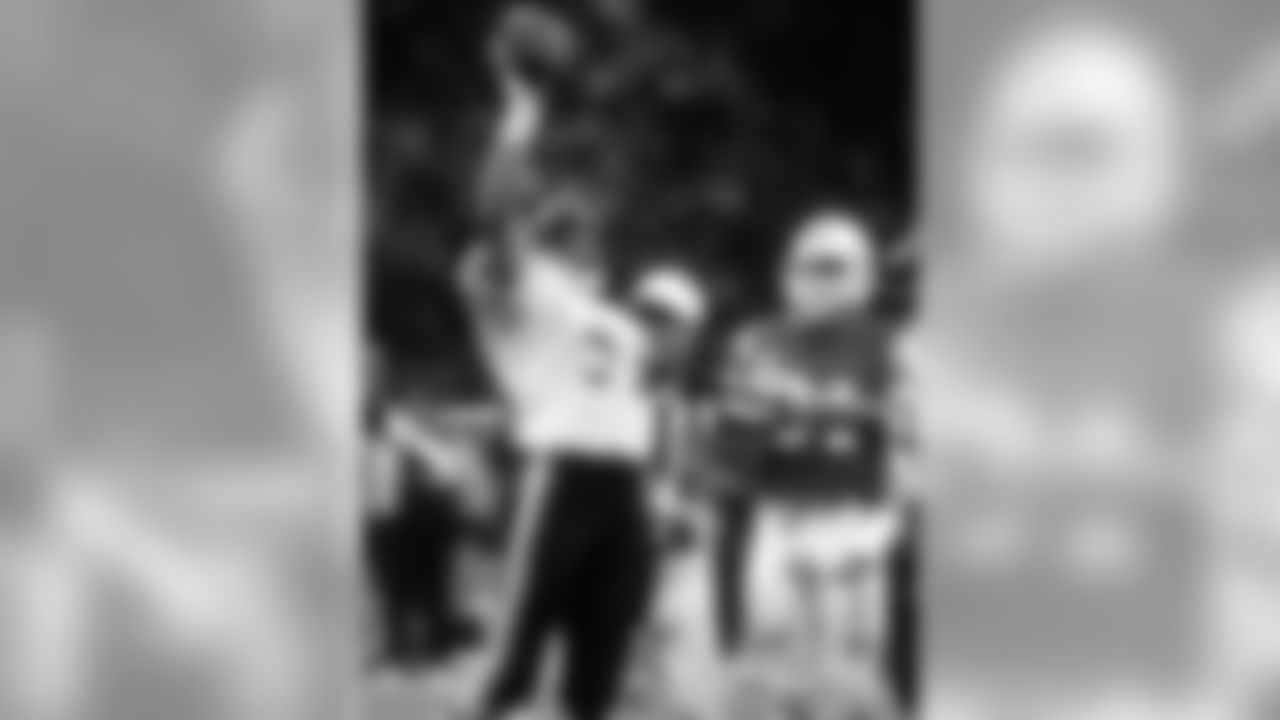
Chicago Bears defensive tackle Dan Hampton (99) celebrates after he recovers the ball after a fumble during Super bowl XX Jan. 26, 1986, at the Louisiana Superdome in New Orleans. The Chicago Bears defeated the New England Patriots 46–10. (Tony Tomsic via AP)
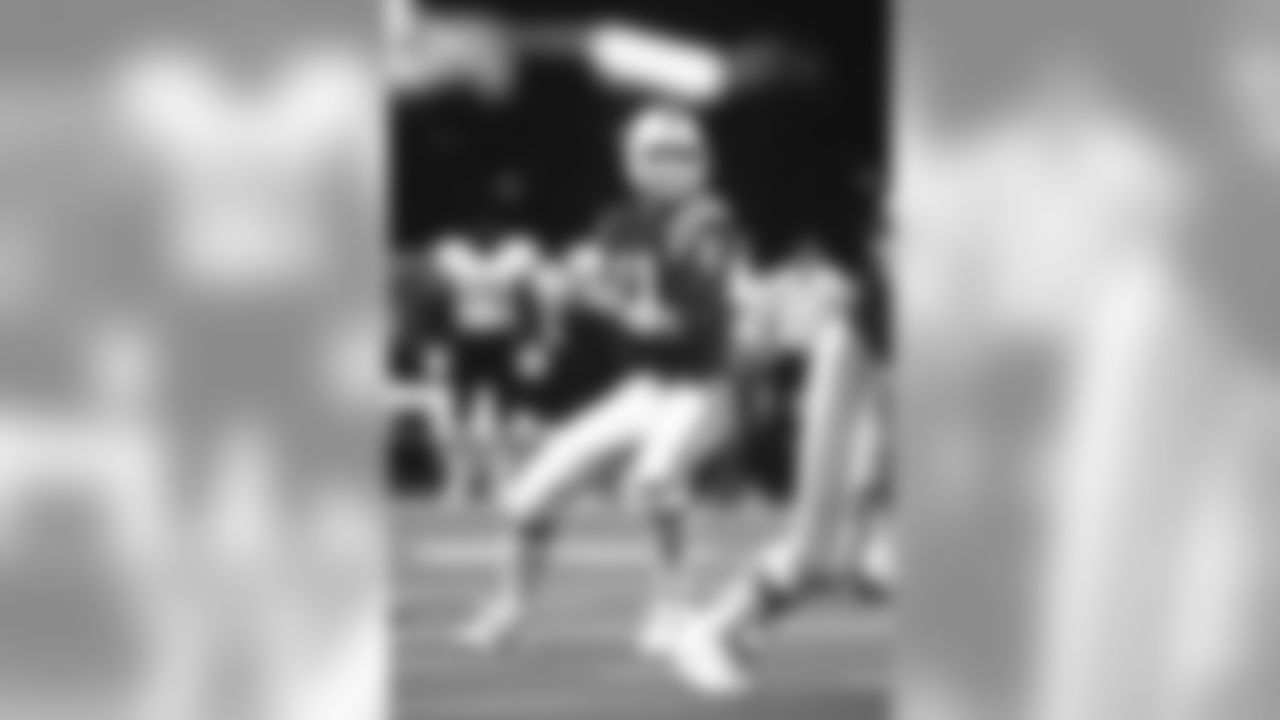
Quarterback Tony Eason (11) of the New England Patriots sets to pass against the Chicago Bears in Super Bowl XX at the Louisiana Superdome in January 1986 in New Orleans, Louisiana. (Al Messerschmidt via AP)

New England Patriots center Guy Morriss (75) gets set to snap the ball while the offensive and defensive line for both teams square off during the NFL Super Bowl XX football game against the Chicago Bears on January 26, 1986 in New Orleans, Louisianna. (AP Photo/Paul Spinelli)
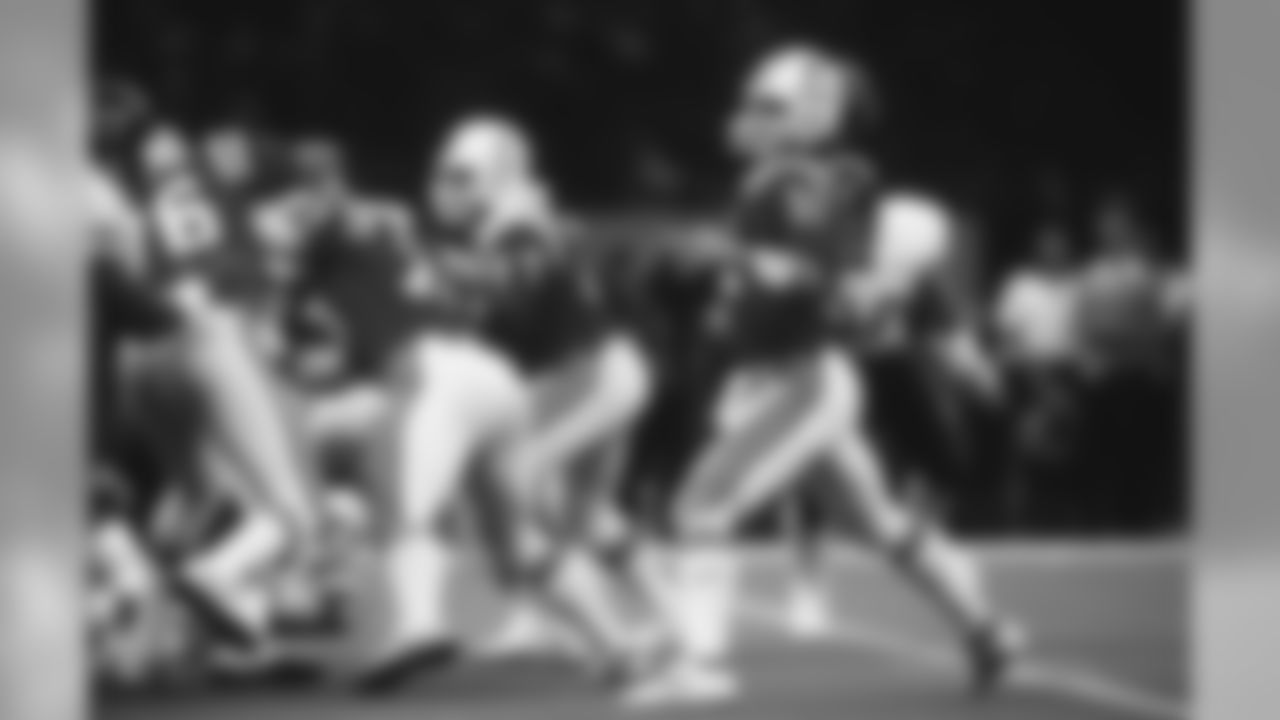
New England Patriots quarterback Tony Eason (11) throws a pass during the NFL Super Bowl XX football game against the Chicago Bears on January 26, 1986 in New Orleans, Louisianna. The Bears won the game 46-10. (AP Photo/Paul Spinelli)
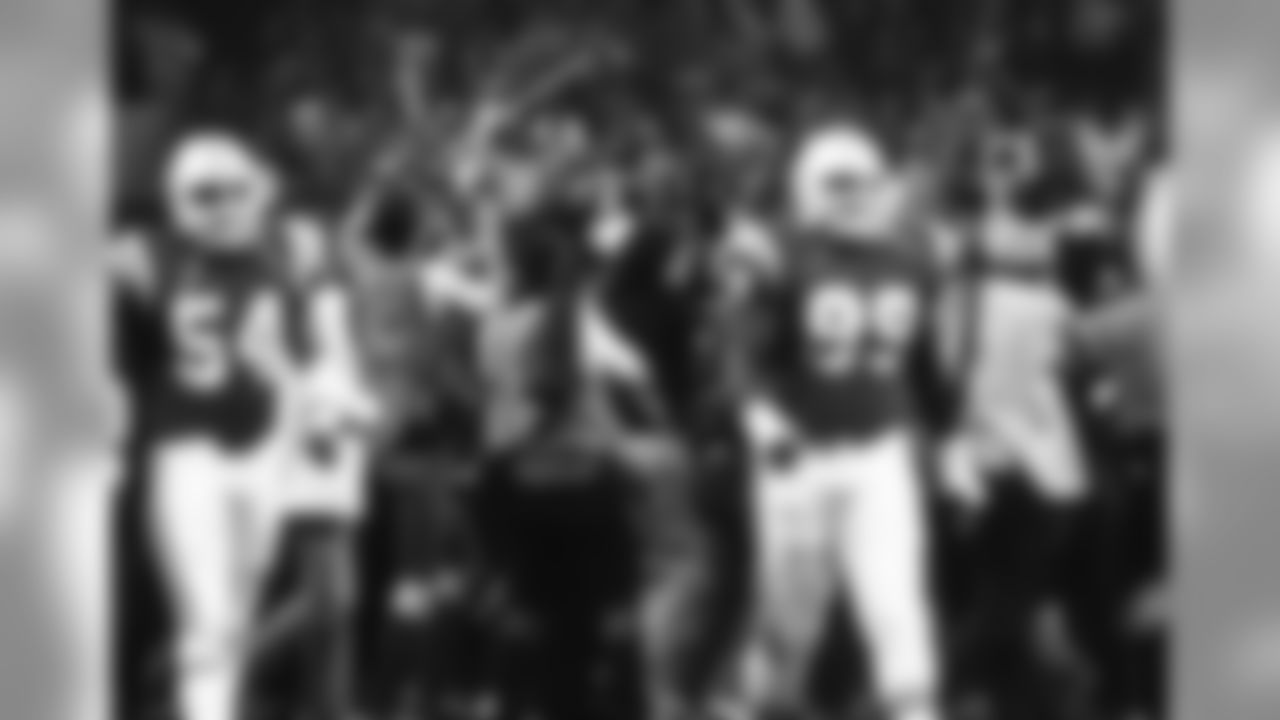
Chicago Bears head coach, Mike Ditka, being carried off the field on the shoulders of the Chicago Bears football team, after the Chicago Bears won Super Bowl XX at the Louisiana Superdome in New Orleans (AP Photo/Warren Wimmer/file archives)



